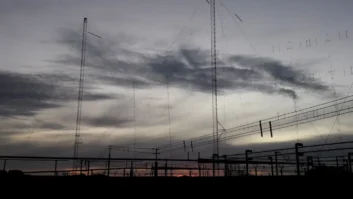Rules are rules, so says the Enforcement Bureau at the Federal Communications Commission. And there’s little leeway given, especially in the case of a licensee that bent the rules by modifying a station’s operating parameters without FCC approval.
Even if the licensee claims it did so as a form of “self-help.”
[Read: FCC Stands Behind Philadelphia Translator Decision]
That was the case for Ondas de Vidas Inc., the licensee of FM translator station K256BS in Palmdale, Calif. Ondas balked at the $12,000 monetary forfeiture handed down by the Enforcement Bureau after Ondas began operating the station at unauthorized power levels.
It was back in April 2017 that the bureau first issued a Notice of Apparent Liability for Forfeiture after finding (on two separate occasions) that Ondas operated the station at power levels that exceeded those found on the station’s license.
Ondas in turn argued that the proposed forfeiture should be reduced or canceled for several reasons: the bureau should have alerted Ondas of the violations before issuing the notice, the station was entitled to operate at a higher transmitter output power than specified on its license, and because Ondas was a thinly funded, nonprofit entity.
The commission considered those arguments but ultimately rejected them and formally issuing a Forfeiture Order of $12,000.
In a second round of arguments, Ondas also reasoned that, following damage to the station’s antenna, it intentionally increased the station’s transmitter power — a “permissible means of self-help,” Ondas argued — in an effort to continue operating at the station’s authorized effective radiated power. The licensee also acknowledged that, in retrospect, it should have followed established procedures — such as filing an application for special temporary authority — to obtain commission approval.
After fully considering the petition, the commission found none of the arguments persuasive and affirmed the $12,000 forfeiture originally assessed in the forfeiture order.
The bureau said that Ondas was mistaken in assuming it was somehow entitled to additional warning before the bureau can issue a notice. It also rejected the notion that a licensee can sit back and await findings of violation before taking appropriate steps to ensure compliance with commission rules.
The bureau also rejected the notion that any “good faith compliance efforts” outweigh the fact that Ondas deliberately increased the station’s transmitter power output. Ondas willfully violated FCC rules plain and simple, the bureau said.
The commission also rejected Ondas’ claim that it has an unblemished tenure as a licensee and thus any proposed forfeiture should be lowered. While this action may be Ondas’ first monetary sanction, the bureau reminded Ondas’ of several other nonmonetary sanctions over the years, which included operating from an unauthorized location, interference violations, unauthorized facility modification, unauthorized antenna orientation and several EAS violations.
As a result, the bureau dismissed Ondas’ petition and reiterated that the licensee is liable for a monetary forfeiture of $12,000.












